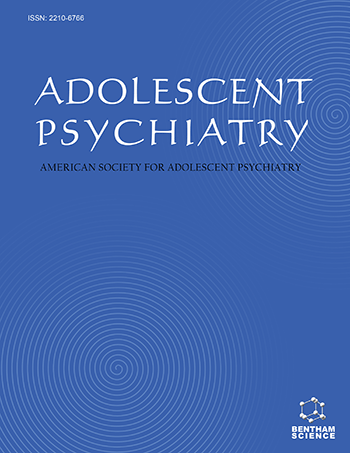Abstract
This article contains first person accounts in narrative and visual form created by clients and family members who have participated in the Early Detection and Intervention for the Prevention of Psychosis Program (EDIPPP). By the time most individuals join EDIPPP they have been experiencing a confusing constellation of thought and behavior changes. For most, EDIPPP signifies the next step in a journey of trying to reclaim a sense of agency in their lives and promise for the future. Understanding the process youth and families go through to make meaning of a “high risk” indication is critical for the clinicians who work with these families. By highlighting these first person accounts and the story they tell, we strive to contribute to this understanding and thereby enrich our discussion of the early detection and intervention for psychosis with the perspectives of individuals participating in our study. These narratives point to the potential value of further research focused specifically on how youth and families come to understand being at risk for psychosis.
Keywords: Adolescents, first person accounts, psychosis, schizophrenia, prodromal psychosis, high risk, recovery
Adolescent Psychiatry
Title:In the First Person: A Window into the Experience of Early Psychosis and Recovery
Volume: 2 Issue: 2
Author(s): Margaret Migliorati, Melina Salvador, Elizabeth Spring-Nichols, Sarah Lynch Tamara Sale and Steven Adelsheim
Affiliation:
Keywords: Adolescents, first person accounts, psychosis, schizophrenia, prodromal psychosis, high risk, recovery
Abstract: This article contains first person accounts in narrative and visual form created by clients and family members who have participated in the Early Detection and Intervention for the Prevention of Psychosis Program (EDIPPP). By the time most individuals join EDIPPP they have been experiencing a confusing constellation of thought and behavior changes. For most, EDIPPP signifies the next step in a journey of trying to reclaim a sense of agency in their lives and promise for the future. Understanding the process youth and families go through to make meaning of a “high risk” indication is critical for the clinicians who work with these families. By highlighting these first person accounts and the story they tell, we strive to contribute to this understanding and thereby enrich our discussion of the early detection and intervention for psychosis with the perspectives of individuals participating in our study. These narratives point to the potential value of further research focused specifically on how youth and families come to understand being at risk for psychosis.
Export Options
About this article
Cite this article as:
Migliorati Margaret, Salvador Melina, Spring-Nichols Elizabeth, Tamara Sale Sarah Lynch and Adelsheim Steven, In the First Person: A Window into the Experience of Early Psychosis and Recovery , Adolescent Psychiatry 2012; 2 (2) . https://dx.doi.org/10.2174/2210676611202020146
| DOI https://dx.doi.org/10.2174/2210676611202020146 |
Print ISSN 2210-6766 |
| Publisher Name Bentham Science Publisher |
Online ISSN 2210-6774 |
 16
16
- Author Guidelines
- Graphical Abstracts
- Fabricating and Stating False Information
- Research Misconduct
- Post Publication Discussions and Corrections
- Publishing Ethics and Rectitude
- Increase Visibility of Your Article
- Archiving Policies
- Peer Review Workflow
- Order Your Article Before Print
- Promote Your Article
- Manuscript Transfer Facility
- Editorial Policies
- Allegations from Whistleblowers
Related Articles
-
The Bullying Prevention Plan: An Approach to Youth who Bully Others
Adolescent Psychiatry A Community Outreach and Education Model for Early Identification of Mental Illness in Young People
Adolescent Psychiatry Environmental Risk and Protective Factors and Their Influence on the Emergence of Psychosis
Adolescent Psychiatry Managing Acute Agitation and Psychotic Symptoms in the Emergency Department
Adolescent Psychiatry Adolescents’ Perceptions of the Factors that Enhance the Therapeutic Relationship: A Qualitative Study in School-based Health Settings
Adolescent Psychiatry The Impact of Diabetes on Adolescent Development: The Experiences of Teenagers with Diabetes Attending a Summer Camp
Adolescent Psychiatry Should Adolescents be Screened for Depression?
Adolescent Psychiatry Psychopharmacological Interventions for Adolescents with Eating Disorders
Adolescent Psychiatry Being or Feeling the Right Weight: A Study of Their Interaction with Depression among Adolescents
Adolescent Psychiatry LECTURES
Adolescent Psychiatry Fostering Resilience: Protective Agents, Resources, and Mechanisms for Adolescent Refugees' Psychosocial Well-Being
Adolescent Psychiatry Family-Based Therapy for Adolescent Anorexia: The Nuts and Bolts of Empowering Families to Renourish Their Children
Adolescent Psychiatry Commentary: ADHD and Substance Abuse
Adolescent Psychiatry Using Attachment Perspectives in Self Psychological/Intersubjective Clinical Work with Adolescents
Adolescent Psychiatry Addressing Crises in Teenage Pregnancy
Adolescent Psychiatry Treatment Outcome of Three Female Adolescents with Borderline Personality Disorder
Adolescent Psychiatry Eating Disorder Subtypes in a Young Female Sample Using the Operationalized Psychodynamic Diagnosis System: Preliminary Results
Adolescent Psychiatry Editorial: DSM-5 and the Challenge of Understanding and Treating Adolescents
Adolescent Psychiatry Measurement Matters in Evaluating Youth Antidepressant Effectiveness
Adolescent Psychiatry Family Psychoeducation in Clinical High Risk and First-Episode Psychosis
Adolescent Psychiatry

























